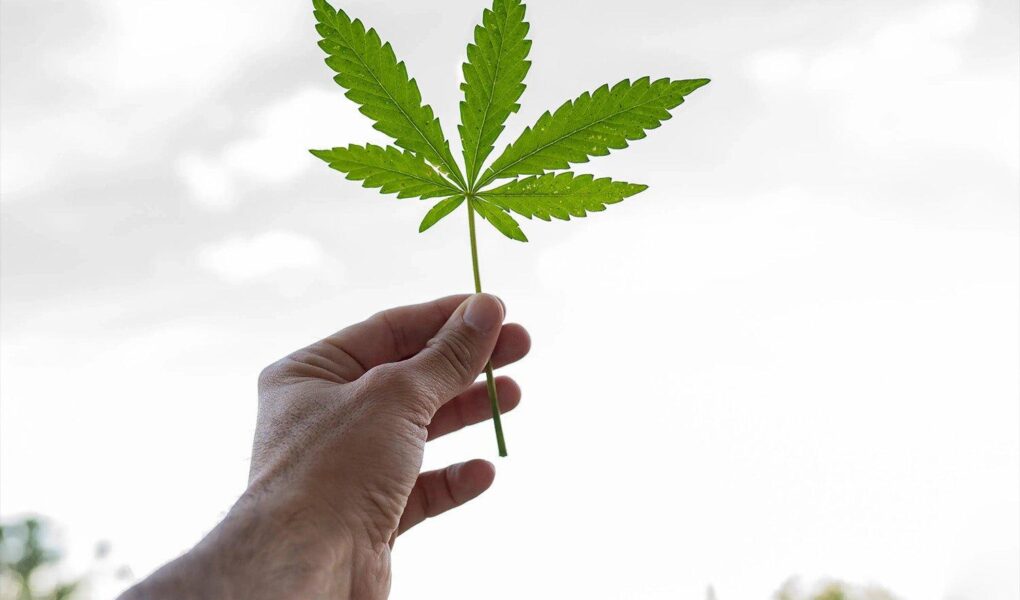As the conversation surrounding marijuana continues to evolve, so too does our understanding of its complex relationship with health, particularly when it comes to cardiovascular wellness. Among the myriad topics of interest is the intriguing interplay between marijuana use and blood pressure—an aspect of health that affects millions and remains shrouded in mystery. Recent studies have suggested that the effects of marijuana on blood pressure can be both nuanced and multifaceted, raising questions about its potential benefits and risks. In this article, we will explore the latest findings, unravel the science behind cannabinoids and cardiovascular health, and provide a balanced perspective on how this controversial plant might influence one of the body’s most vital functions: maintaining a steady blood pressure. Join us on this enlightening journey through the green haze of cannabis, where we will seek to illuminate the pathways connecting pleasure and pressure in the world of medical research.
Table of Contents
- The Impact of Cannabis on Blood Pressure Regulation
- Understanding the Mechanisms: How THC and CBD Influence Cardiovascular Health
- Exploring the Risks: Marijuana Use and Blood Pressure Fluctuations
- Guidelines for Safe Consumption: Recommendations for Patients with Hypertension
- Q&A
- Closing Remarks
The Impact of Cannabis on Blood Pressure Regulation
The relationship between cannabis and blood pressure is complex and multifaceted, leading to a mix of findings in scientific studies. While some research indicates that cannabis may have a calming effect on the cardiovascular system, potentially leading to a decrease in blood pressure, other studies highlight the potential for short-term increases in heart rate and blood pressure following consumption. In particular, the active compounds in cannabis, such as THC, can elicit varying responses depending on the method of ingestion, dosage, and individual physiological responses. Key points to consider include:
- THC and Blood Pressure: Tetrahydrocannabinol may cause initial increases in heart rate and blood pressure.
- CBD’s Role: Cannabidiol has shown promise in reducing anxiety and stress, which could indirectly help manage blood pressure levels.
- Individual Variation: Factors such as prior health conditions, frequency of use, and tolerance can significantly alter blood pressure responses.
Furthermore, ongoing research aims to clarify how different strains and methods of consumption affect blood pressure. Studies often utilize various dosing schedules, considering both recreational and medicinal use, to uncover the nuanced effects of cannabis on hypertensive individuals. A comparative summary might look like this:
| Cannabis Type | Effect on Blood Pressure | Notes |
|---|---|---|
| High THC | Potentially increases | Short-term spikes after use |
| High CBD | May decrease | Relaxing effects may lower anxiety |
| Balanced THC/CBD | Variable | Depends on individual tolerance and dosage |
Understanding the Mechanisms: How THC and CBD Influence Cardiovascular Health
The influence of THC (tetrahydrocannabinol) and CBD (cannabidiol) on cardiovascular health is a fascinating realm of research that highlights their distinct mechanisms. While THC is often associated with increased heart rate and potential elevations in blood pressure shortly after consumption, CBD has shown promise in countering these effects. Key mechanisms at play include:
- Vasodilation: CBD has been known to promote the dilation of blood vessels, potentially leading to lower blood pressure.
- Stress Reduction: By interacting with the endocannabinoid system, both THC and CBD may help in reducing anxiety and stress, which are significant contributors to hypertension.
- Neuroprotective Properties: CBD’s neuroprotective properties may play a role in reducing inflammation in cardiovascular systems.
Despite their benefits, it’s crucial to consider the dosage and individual responses to THC and CBD. For instance, some studies suggest that low doses of THC may have minimal impact on heart rate, while higher doses can lead to significant increases. Below is a simplified perspective on their effects:
| Substance | Primary Effect | Potential Impact on Blood Pressure |
|---|---|---|
| THC | Increases heart rate | Possible transient elevation |
| CBD | Induces relaxation | Potentially lowers blood pressure |
Exploring the Risks: Marijuana Use and Blood Pressure Fluctuations
As researchers delve deeper into the complex relationship between marijuana and cardiovascular health, it becomes increasingly clear that cannabis use is not without its potential risks, particularly concerning blood pressure. While some studies suggest that marijuana may have vasodilatory effects, leading to a temporary drop in blood pressure, this response can vary significantly among individuals. This phenomenon may be influenced by factors such as dosage, method of consumption, and an individual’s unique physiological makeup. As a result, users may experience a range of outcomes, from dizziness and lightheadedness to episodes of elevated blood pressure.
Understanding the nuances of how marijuana interacts with our bodies is essential for those who either use cannabis recreationally or consider it for therapeutic purposes. Some key points to keep in mind include:
- Short-term Effects: Elevated heart rate and fluctuating blood pressure may occur shortly after use.
- Long-term Impact: Continued use could potentially lead to persistent changes in blood pressure regulation.
- Individual Variation: Genetics, existing health conditions, and concurrent medications can all influence how marijuana affects blood pressure.
| Effect of Marijuana on Blood Pressure | Duration |
|---|---|
| Initial Drop | Minutes |
| Increased Heart Rate | Up to 3 hours |
| Possible Long-term Changes | Varies |
This complexity underscores the necessity for comprehensive discussions with healthcare providers for individuals considering cannabis as part of their health regimen. Staying informed about the potential risks and variations in blood pressure responses can empower users to make safer, more educated choices about their cannabis consumption.
Guidelines for Safe Consumption: Recommendations for Patients with Hypertension
When considering the consumption of marijuana, especially for individuals with hypertension, it is important to follow certain guidelines to minimize risks. First and foremost, consultation with a healthcare provider is essential. This ensures personalized advice based on individual medical history and medication regimens. Additionally, patients should be aware of the following recommendations:
- Start Low and Go Slow: Begin with low doses to gauge the body’s reaction.
- Avoid High-THC Strains: Opt for strains with higher CBD content, as THC may raise blood pressure.
- Stay Hydrated: Drink plenty of water to prevent dehydration, which can exacerbate hypertension.
- Monitor Blood Pressure: Regularly check blood pressure levels to assess any changes related to consumption.
Understanding the varying effects of different consumption methods is also critical. For instance, smoking marijuana may lead to acute changes in heart rate and blood pressure, whereas edibles may provide a more gradual effect. Here’s a brief overview of the consumption methods and their potential impacts:
| Consumption Method | Potential Impact on Blood Pressure |
|---|---|
| Smoking | Can cause immediate increases in heart rate and temporary spikes in blood pressure. |
| Edibles | Effects may be delayed but can lead to a more sustained impact on blood pressure. |
| Vaping | Similar to smoking, can lead to acute changes but may be less harsh on the lungs. |
| Tinctures | Provide a controlled dosage and may allow for easier monitoring of effects. |
Q&A
Q&A: Exploring the Connection Between Marijuana and Blood Pressure
Q1: What is the relationship between marijuana and blood pressure?
A1: The relationship between marijuana and blood pressure is complex and not fully understood. Some studies suggest that marijuana may cause temporary increases in heart rate, potentially leading to elevated blood pressure shortly after consumption. Conversely, other research points to long-term effects where certain compounds in marijuana might contribute to lower blood pressure over extended use. The impact can vary depending on dosage, frequency of use, and individual health conditions.
Q2: How does marijuana consumption affect blood pressure in the short term?
A2: In the short term, marijuana can lead to a spike in heart rate and a subsequent increase in blood pressure, particularly right after use. This is due to the psychoactive compound THC, which affects the central nervous system. However, these effects are typically transient, and blood pressure may normalize as the effects of the drug wear off.
Q3: Are there any long-term effects of marijuana on blood pressure?
A3: Long-term effects of marijuana on blood pressure remain a topic of ongoing research. Some studies have indicated that regular use of marijuana may lead to lower blood pressure over time, particularly in older adults or those with certain medical conditions. However, conclusive evidence and guidelines are still lacking, making it essential for individuals to monitor their own health outcomes.
Q4: What should people consider before using marijuana if they have high blood pressure?
A4: Individuals with high blood pressure should approach marijuana use cautiously. It’s important to consult a healthcare professional before starting or continuing marijuana, especially if they are on medication for hypertension. Personal health, individual responses to marijuana, and the method of consumption (smoking versus edibles) should all be considered.
Q5: Are there types of marijuana that might be better for those concerned about blood pressure?
A5: While there’s no one-size-fits-all answer, some individuals may find that strains high in CBD (cannabidiol) and lower in THC may provide a more positive experience without causing significant increases in heart rate or blood pressure. It’s crucial to experiment cautiously, ideally under the guidance of a knowledgeable provider, to determine what works best for each individual.
Q6: What role do other factors play in how marijuana affects blood pressure?
A6: Several factors can influence how marijuana affects blood pressure, including the method of consumption (smoking, vaping, edibles), individual biochemistry, existing health conditions, and concurrent medications. Lifestyle factors such as diet, exercise, and stress levels also play critical roles in overall cardiovascular health and could modify marijuana’s effects on blood pressure.
Q7: What does the current research suggest about the safety of marijuana for those with elevated blood pressure?
A7: Current research is mixed, and while some studies indicate potential therapeutic benefits of marijuana for managing certain health issues, there is no definitive consensus on its safety for individuals with elevated blood pressure. More investigation is needed to establish clear guidelines. For now, caution and professional consultation are advised when considering marijuana use in this context.
Q8: Where can I find more information about marijuana and its effects?
A8: To gain a deeper understanding, consider consulting reputable medical sources, peer-reviewed studies, or healthcare professionals who specialize in cannabis research. Organizations like the American Heart Association and the National Institute on Drug Abuse provide valuable resources and updated research findings on the topic. Always stay informed to make the best choices for your health!
Closing Remarks
In the ever-evolving landscape of health and wellness, the relationship between marijuana and blood pressure stands out as a subject ripe for exploration. As research unfolds, we find ourselves navigating a complex web of findings—where traditional wisdom often clashes with emerging science. Whether viewed through the lens of casual use or therapeutic application, it’s crucial to approach this topic with a discerning eye.
Ultimately, the interaction between marijuana and blood pressure varies from person to person, influenced by factors such as dosage, method of consumption, and individual health profiles. While some studies suggest potential benefits, others highlight risks that invite caution. As the dialogue continues, the importance of informed decision-making and personalized healthcare cannot be overstated.
As you embark on your journey through the world of cannabis and its effects on blood pressure, remember to consult healthcare professionals and stay abreast of the latest research. With a balanced perspective and an open mind, the path to understanding may not only illuminate the nuances of this relationship but also foster a more holistic approach to our health and well-being.



